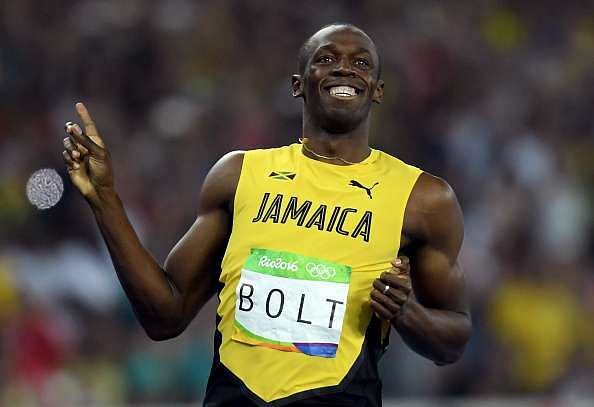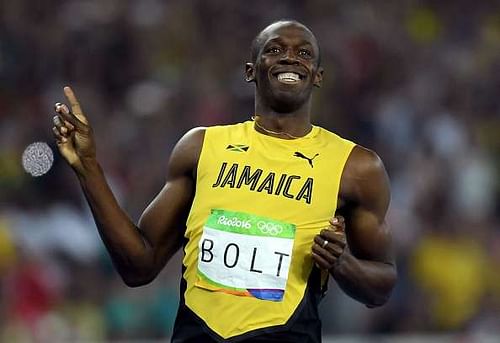
Usain Bolt earned more than £5 million per second in Rio, creating his own business empire

Usain Bolt has become a household name throughout the world with his exploits in sprinting. The Jamaican is considered as the fastest person on the planet and is easily the greatest ever sprinter in history.
But the running track is not the only place where the 29-year old has been shining for the past 8 years. Bolt has been building himself a business empire which has seen him become one of the highest paid athletes on the globe.
The athlete is currently rewriting the history books of the Olympic Games by remaining undefeated and on course to win the 200m sprint event as well as the 4x100m relay event, and has already won his third consecutive gold medal in the 100m sprint at the Games. “Lightning Bolt” had been facing trouble with his hamstring before the Rio Olympics but with proper treatment in Germany, the sprinter looks fitter than ever.
However, fitness and treatment can never be possible if the athlete did not have a fortune of his own to spend. The reigning Olympic champion has been earning millions of dollars every year since he broke the 100m world record in Beijing in 2008. Bolt was unheard of before the 2008 Olympic Games and would have been nowhere near the biggest earners in sports if he hadn’t created history at the Games.
Bolt’s Endorsements
He only had two sponsors back then in German sportswear brand Puma and Jamaican mobile phone company Digicel.
But as the sprinter amassed the three gold medals in China, sponsors from all around the world snapped up Bolt as their brand ambassador. The 11-time World Champion currently has deals with Puma (which is valid until 2025), car-maker Nissan, wrist watch brand Hublot, Visa, mobile operator Virgin Media and Japan’s All Nippon Airways. Australian telecommunications company Optus is also one of the main sponsors for Bolt along with Enertor.
His sponsors also include Gatorade, who have even named an energy drink after him. What this indicates is that the Jamaican is not just fast on the track, he is also very fast at making money.
The sprinter is said to have made a lot of money after he made a hat-trick of winning Olympic golds in the 100m event. It is estimated that Bolt’s earning potential has been doubled for the next year with the historic feat he has achieved in Rio, and if he wins two more medals, he could be challenging the likes of Cristiano Ronaldo for the top spot.
How much Bolt earns
As reported by The Sun, market analysts have said that the sprinter has made approximately £five million per second in the 9.81 seconds win in Rio. The interesting thing about Bolt’s riches is that the athlete has an estimated net worth of $60 million at the age of 29. According to Forbes, his fortune has increased by a staggering $32.5 million in the last 12 months.
Bolt’s sport, track and field, only rewards its athletes $60,000 for each gold medal won, which makes it less than a million, considering he has won 11 gold medals. The rest of the money has come from his sponsorship deals which have seen him become a proper marketable athlete all around the world.
The athlete has been making money through other ways, as well, as he charges between $250,000 to $400,000 for different track meet appearances throughout the world, even though it is more than 10 times higher than the likes of Mo Farah charge. This works in favour of the organisers as well, as one of the directors of a meet in Paris says, “With Bolt, we know that we will easily fill the Stade de France.” Therefore, Usain Bolt’s image works well for his agents and sponsors as well as for himself.
The future
Apart from sponsorship money, Bolt has made sure that he will continue to keep earning loads of money even after he retires from the sport after the 2017 World Championships in London.
The sprinter has trademarked his name and his signature “Lightning Bolt” pose and even has an emoji of the same which gets him loyalty money from applications which use it. However, the most important part of Bolt’s earnings’ system is that the athlete also gives back to the society through his Jamaica-based foundation.
The sprinter is a one in a billion and that is what has helped him in becoming one of the greatest and richest sportspersons of all time. It will be interesting to see how he performs in his two remaining events at the Games, and how well he can do with his business structure to make the most of his talent in his bank account as well.